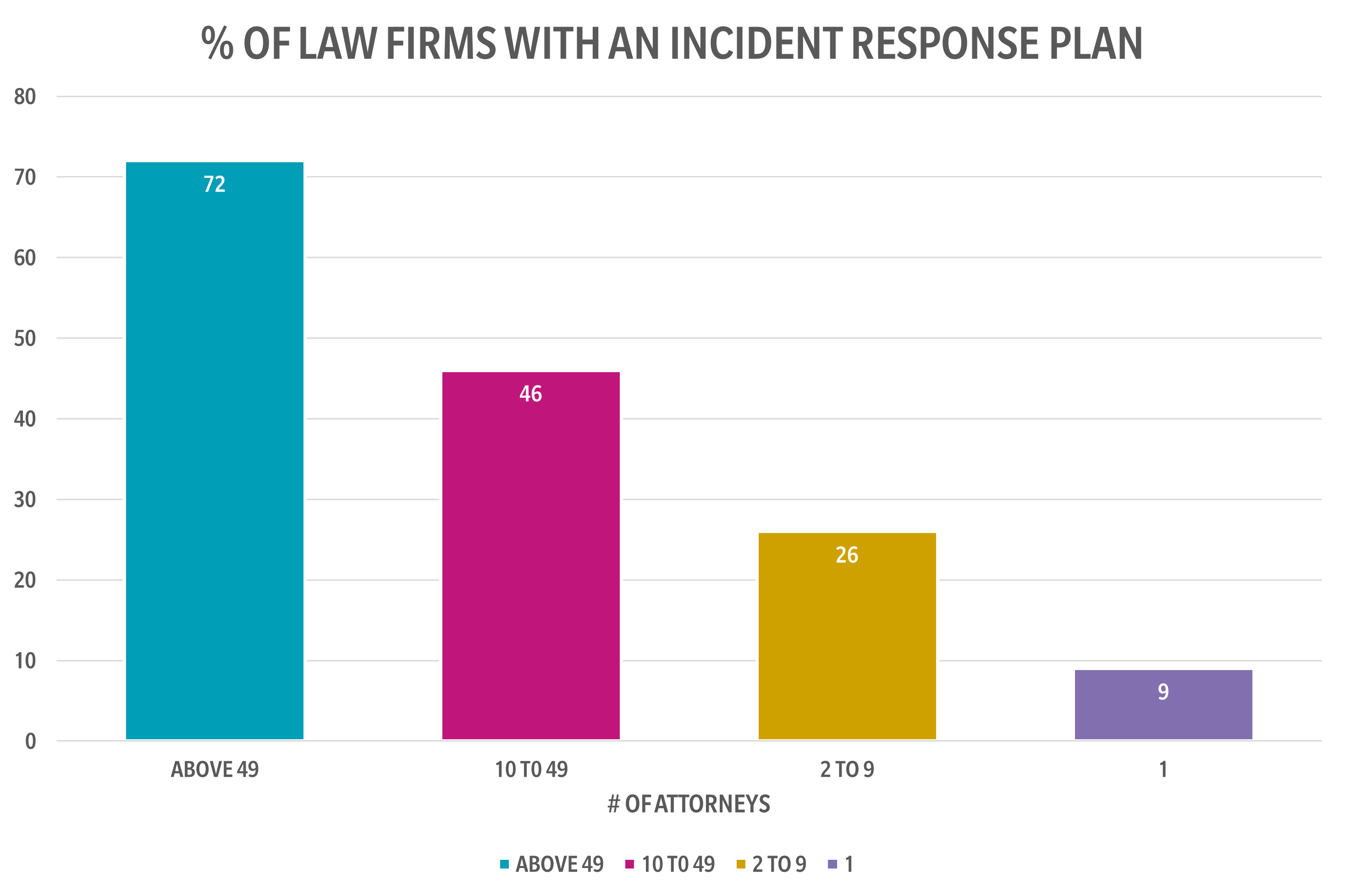We know you’re great at winning cases, but are you equally adept at keeping your court files, briefs, discovery materials, exhibits, etc. secure? If you’re scratching your head, don’t worry; we’ve got you covered.
Cybersecurity isn’t just about shiny gadgets and complex jargon; it’s about trust. It’s about showing your clients that in your hands, their sensitive information is as secure as Fort Knox. So, let’s dive into how you can boost your law firm’s cybersecurity and consequently, your client’s trust.
The American Bar Association (ABA) highlighted in their 2022 cybersecurity report that 75% of surveyed law firm employees confirmed they have some form of technology training available to their firm. The ABA suggests that technology training should not only cover the technology used internally by law firms but should also incorporate cybersecurity awareness training. This cybersecurity awareness training should occur at least once a year and, if possible, more frequently to ensure that employees can refresh and retain the knowledge gleaned from these training sessions.
Why? Because cybersecurity isn’t a one-person show. It’s a team effort. So, ensure everyone understands what phishing attacks look like or why ‘password123’ might not be the best password choice. Especially positions with critical access to documents like your office administrator, accountant, paralegal, C-Suite and partners at your law firm. Here is a free downloadable infographic on cybersecurity awareness that you can share with your staff or print and post it at the prominent location of your office.
Use strong security technologies, like firewalls, intrusion detection systems, antivirus software and encryption tools. Regularly update and patch these systems to stay protected against new threats. Here are three of the critical security measures a law firm must take at minimum in 2023:
Having a cybersecurity plan is not only a good business decision to keep your law firm and the integrity of your attorneys intact, but ABA reported that 33% of law firms were asked for their cybersecurity plan/policy by a client or potential client in 2022. This means your client base is becoming more aware of the cyber threats and wants to work with partners who are up-to-date with their security policies.
Here is a tip: Look for a local IT service provider who also has a strong cybersecurity portfolio, like Konica Minolta IT Services, who are skilled at building and maintaining a secure IT infrastructure that is custom to your firm and supported at a fraction of the cost of an in-house team.
Despite your best efforts, security incidents can still occur. Develop a comprehensive incident response plan that outlines how your firm will respond to data breaches or other cybersecurity incidents. This should include a complete plan of action on how to deal with the incident, who needs to be informed and in compliance with legal requirements for data breach reporting. Think of it as a ‘What to do now’ plan for when you are in the middle of a cyber incident.

According to ABA, only 42% of law firms have an incident response plan in place, of which only 46% of law firms with 10 to 46 attorneys had an incident response plan.
Now that we understand the importance of cybersecurity in building trust, let’s look at some easy steps professional services firms can take to build trust with their clients:
Think of it as having a secret agent on your team looking out for threats and keeping your firm’s data safe and sound. We understand that building an in-house IT department is not a viable investment, and hiring one IT employee may not provide all the skills you need. Here is a tip: Look for a local IT service provider who also has a strong cybersecurity portfolio, like Konica Minolta IT Services, which has a dedicated lawyers helpdesk and is skilled to build and maintain a secure IT infrastructure that is custom to your firm and supported in a fraction of the cost of an in-house team.
By cementing these cybersecurity practices into your law firm, you’ll not just be locking down your digital premises but also building an unbreakable bond of trust with your clients. After all, trust isn’t just about winning cases; it’s about making your clients feel secure in this vast, digital world.